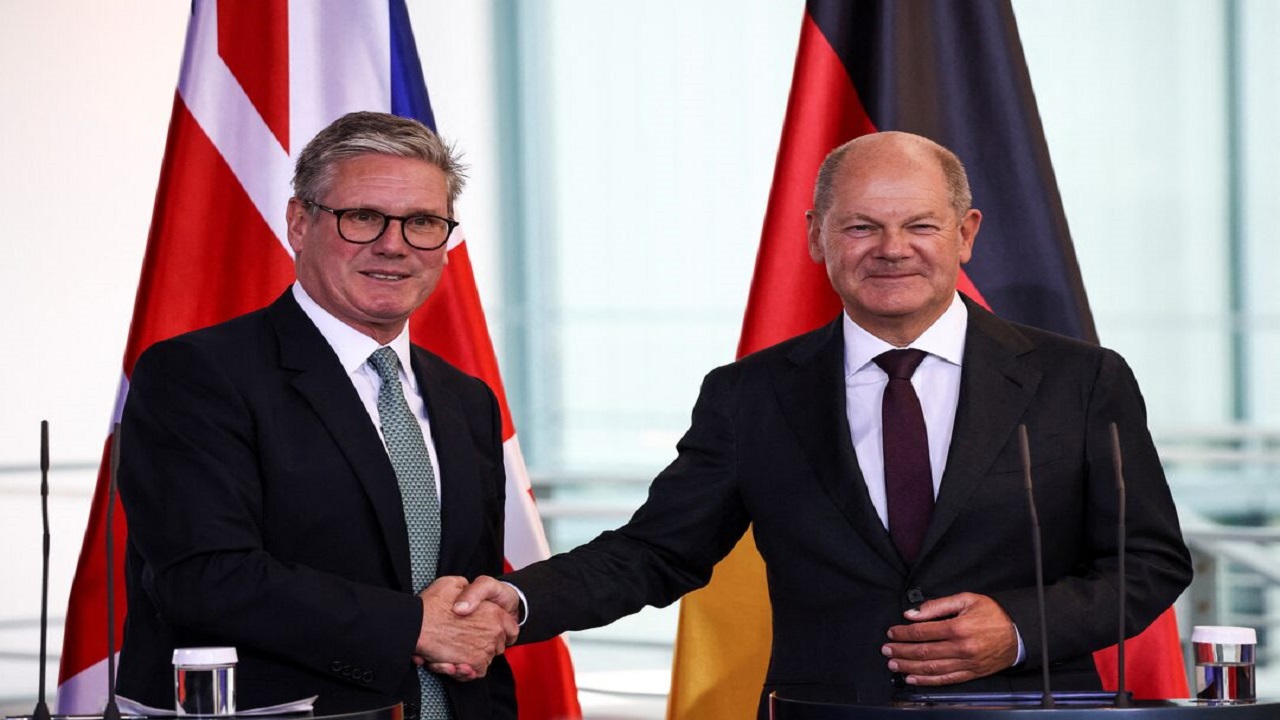Rebuilding Trust After Two Wars: A European Security Milestone
Context
In a landmark development, the United Kingdom and Germany have signed their first bilateral treaty since World War II, committing to mutual military assistance in case of an armed attack. This move is not only strategically important but also symbolically significant, given that both countries were adversaries during the Second World War. The development invites reflection on the historical journey from World War I to World War II, the global shifts these wars caused, and the long-term implications on the current geopolitical order.
Introduction
The two World Wars were defining events of the 20th century. World War I (1914–1918), though concluded with a peace settlement, sowed the seeds of World War II (1939–1945). The aftermath of the First World War, marked by economic distress, political instability, and unresolved grievances, directly influenced the rise of authoritarian regimes and global conflict. The Second World War, more destructive and widespread, not only caused immense human loss but also transformed the global political and economic order, laying the foundation for the current international system.
How World War I Paved the Way for World War II
Failure of the Treaty of Versailles
-
The Treaty of Versailles (1919) imposed harsh conditions on Germany, including heavy reparations, territorial losses, and military restrictions.
-
The treaty generated deep resentment and humiliation, fostering an environment ripe for extremism and revenge.
Political Instability in Germany
-
The fall of the Wilhelmine monarchy led to the establishment of the Weimar Republic, which lacked political stability and public support.
-
This instability enabled the rise of Adolf Hitler and the Nazi Party, who capitalised on national grievances.
Economic Crisis
-
Post-war Germany experienced hyperinflation, unemployment, and a severe economic downturn.
-
The reparation payments demanded by the Treaty of Versailles further weakened the German economy.
Failure of International Institutions
-
Woodrow Wilson's vision of self-determination clashed with geopolitical realities in Europe.
-
The U.S. Senate rejected the Treaty of Versailles, weakening the League of Nations.
-
The League of Nations, formed in 1920, lacked enforcement power and was ineffective in curbing rising aggression.
Factors That Led to the Outbreak of World War II
Economic Collapse
-
The Great Depression triggered by the Wall Street Crash of 1929 caused global economic distress, particularly in Europe.
-
It contributed to widespread unemployment, poverty, and the appeal of extremist ideologies.
Policy of Appeasement
-
The British policy of appeasement, most evident during the Munich Conference of 1938, sought to avoid war by conceding to Hitler’s demands.
-
It failed to contain aggression and emboldened Germany’s expansionist ambitions.
End of Weimar Republic and Rise of Nazism
-
By 1933, the Nazi Party had gained dominance in the Reichstag, and Hitler was appointed Chancellor.
-
The Weimar Republic collapsed, and Germany became a totalitarian state.
Violation of Versailles Treaty
-
Hitler’s remilitarisation of the Rhineland directly violated the Treaty’s terms.
-
Germany’s annexation of Austria (Anschluss) in 1938 and demand for the Sudetenland in Czechoslovakia further escalated tensions.
Formation of Axis Powers and Aggression
-
Germany and Italy supported Franco in the Spanish Civil War, fostering fascist solidarity.
-
In 1939, Germany invaded the rest of Czechoslovakia, clearly abandoning all diplomatic pretenses.
Course of World War II
Blitzkrieg and Aerial Bombing
-
Germany launched rapid offensives across Europe using Blitzkrieg tactics, combining air and ground attacks.
-
Cities like London were devastated by Luftwaffe bombings.
Formation of Alliances
-
The war was fought between the Axis Powers (Germany, Italy, Japan) and the Allied Powers (Britain, France, Soviet Union, USA).
U.S. Entry into the War
-
The attack on Pearl Harbor in December 1941 brought the United States into the conflict, significantly strengthening the Allied effort.
Turning Points
-
Germany suffered major defeats at Stalingrad and El Alamein.
-
The Normandy landings (Operation Overlord) on June 6, 1944, marked the beginning of the liberation of Western Europe.
Conclusion of the War
-
Germany surrendered in May 1945, followed by Japan’s surrender after the atomic bombings in August 1945.
-
The war resulted in an estimated 40 to 50 million deaths worldwide.
Post-War Global Transformation
Shift in Power Structure
-
The defeat of the Axis powers led to a bipolar global order, dominated by the United States and the Soviet Union.
Establishment of International Institutions
-
The United Nations was established in 1945 to maintain global peace and security.
-
The IMF and World Bank, rooted in Keynesian economics, were formed at Bretton Woods to stabilise the global economy.
War Crimes and Legal Frameworks
-
The Nuremberg and Tokyo trials introduced legal norms such as war crimes and crimes against humanity.
-
The Genocide Convention (1948) was adopted following the Holocaust.
Conclusion
The recent UK-Germany treaty marks a remarkable transformation in international relations, turning historical enmity into strategic partnership. It reflects how post-WWII diplomacy and institutions have succeeded in preventing large-scale war in Europe. The agreement also underscores the need for mutual security, especially in the face of emerging geopolitical threats, and sets a precedent for stronger European cooperation. As global power dynamics shift, such alliances will continue to shape the future of international order.




Comments (0)